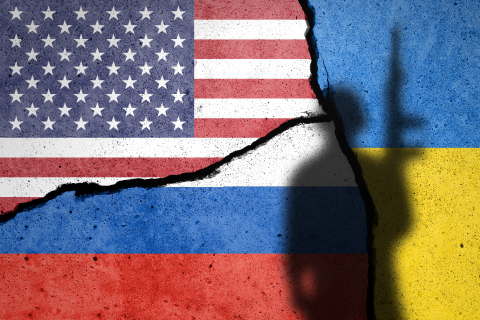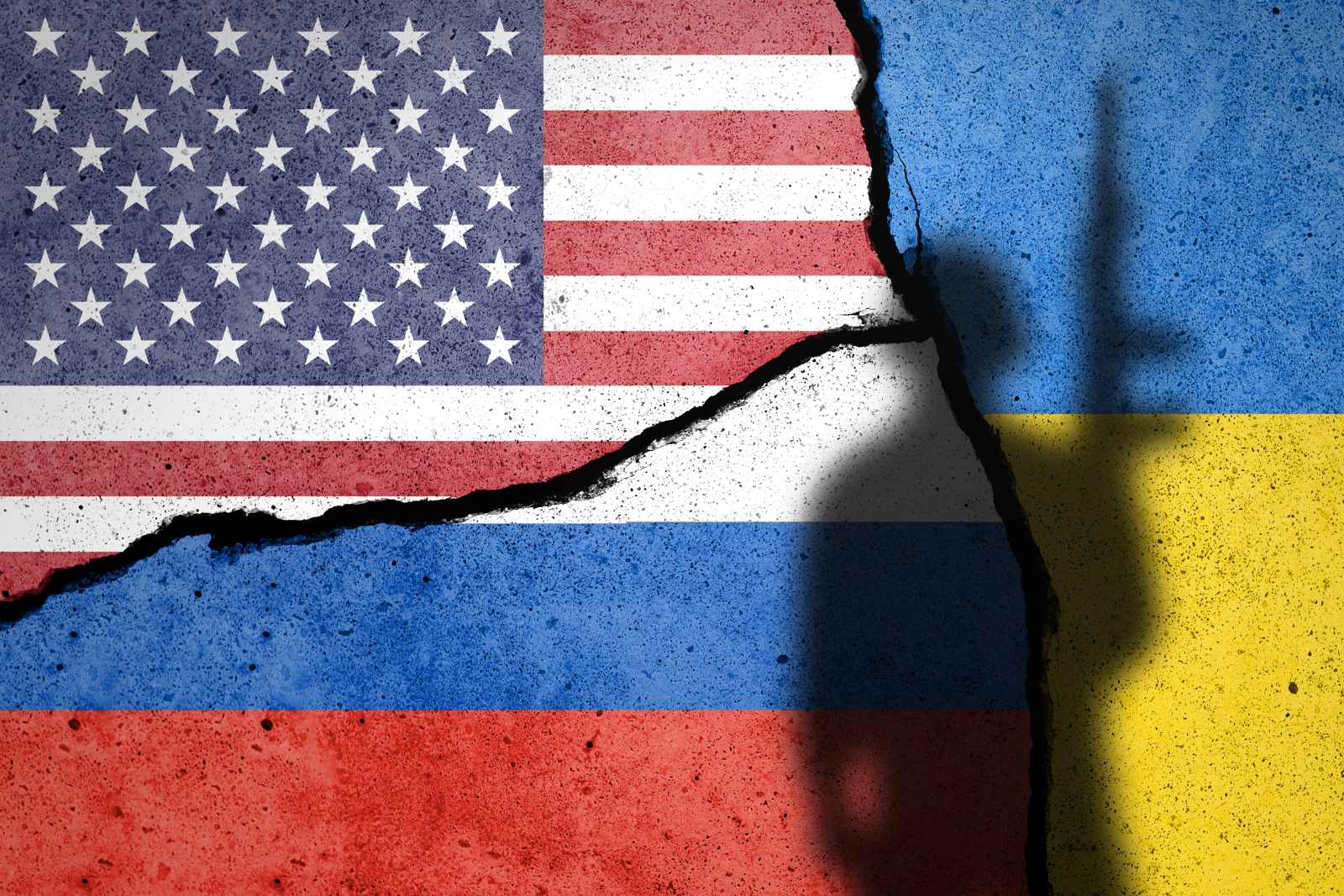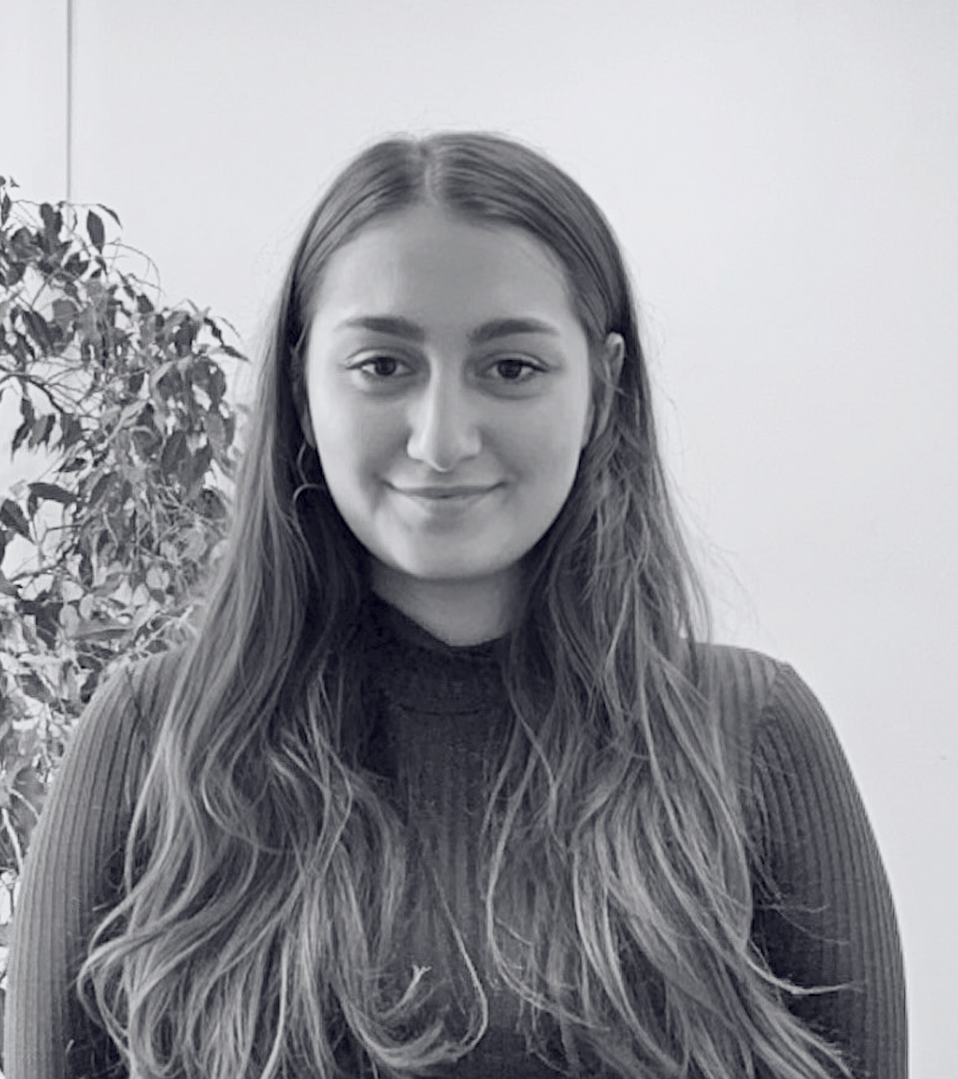
Practical information
Accessibility
Themes and regions
Related centers and programs

After more than three years, the war in Ukraine knows neither victor nor vanquished. However, the balance of power is gradually being reversed in the triple context of Russia’s resilience, Donald Trump’s arrival in the White House, and the consequent weakening of transatlantic ties.
While the Kremlin sees the Trump factor as an opportunity to move closer to its goals of vassalizing Ukraine, controlling the post-Soviet space and destabilizing Europe, Washington’s head-on opposition to Moscow’s best partners could limit Russia’s capabilities. Is Ukraine able to continue the war? Is it in Russia’s interest to negotiate? Can Trump weaken Russia’s supporters? Do Moscow’s determination and the West’s division condemn the post-Soviet space to increased Russian influence?
9:00-9:30: Opening words
- Thomas Gomart, Director of Ifri.
- Alice Rufo, General Director of DGRIS.
9:30-11:00: Panel 1. Between negotiation and continued fighting: Ukraine's Cornelian dilemma
Moderator: Céline Bayou, Head of the Russia, Eastern Europe, Central Asia and Caucasus Department, General Directorate of International Relations and Strategy (DGRIS), Ministry of the Armed Forces.
- Ukraine's resources and limits: army, economy, society. Anna Colin-Lebedev, Lecturer in Politic Science at Paris-Nanterre University.
- Trump: What strategy toward Ukraine and Russia? Célia Belin, Director of the European Coundil on Foreign Relations (ECFR).
- Can the Europeans compensate for the withdrawal of the United States? Elie Tenenbaum, Director of Ifri's Center for Security Studies.
11:00-11:30: Coffee break
11:30-13:00: Panel 2. Is it in Russia's interest to stop the war?
Moderator : Tatiana Kastouéva-Jean, Director of Ifri's Russia/Eurasia Center.
- The human and material capacities of the Russian armed forces. Pavel Baev, Professor at PRIO (Norway), Associate Researcher at Ifri.
- Moral state of the Russian armed forces. Olesya Gerasimenko, Journalist for the Independent Russian Media Verstka.
- State of play and outlook for the Russian economy. Alexander Kolyandr, Associate Researcher at the Center for European policy Analysis (CEPA).
- Russian society and elites: sustainable new balances? Marlène Laruelle, Professor at George Washington University (USA), Director of the Institute for European, Russian and Eurasian Studies (IERES).
13:00-14:00: Buffet lunch
14:00-15:30: Panel 3. Can the Trump factor destabilize Russia's partnerships?
Moderator: Dimitri Minic, Researcher at Ifri's Russia/Eurasia Center.
- The Russia-China partnership: the moment of truth? Alice Ekman, Director of Research at the European Union Institute for Security Studies (EUISS).
- Can Russia sacrifice Iran? Nikita Smagin (online), Regular Contributor to Carnegie's Russia Eurasia Center.
- To what extend can Russia rely on Turkey? Dorothée Schmid, Head of Ifri's Turkey/Middle East Program.
- How might the relationship between Russia and OPEC+ evolve? Mikhail Kroutikhin, Co-founder and Analyst of the Independent Consultancy RusEnergy.
15:30-16:00: Coffee break
16:00-17:30: Panel 4. Russia in the post-Soviet space: Is Russian influence increasing?
Moderator: Marie Dumoulin, Director of the Wider Europe program (ECFR).
- Moldavia: Is a Georgian scenario possible? Igor Zaharov, Advisor to the President of Moldova.
- Can Armenia espace Russian influence? Anahide Pilibossian, Vice-President of Strategy and Development at the Applied Policy Research Institute of Armenia (APRI).
- Redefining Russian influence in Tadjikistan and Kyrgyzstan in the face of growing Chinese, Turkish and Iranian presence. Mélanie Sadozaï (online), Researcher at the Department for Interdisciplinary and Multiscalar Area Studies (DIMAS), University of Regensburg.
17:30-18:00: Speech by Nicolas de Rivière, French Ambassador to Russia (online)
Moderator: Tatiana Kastouéva-Jean, Director of Ifri's Russia/Eurasia Center.
This event is organized with the support of the General Directorate of International Relations and Strategy (DGRIS), Ministry of the Armed Forces.
Contact
Related Subjects
Other events

Paris Naval Conference 2026: Naval Rearmament and Operations in Contested Waters
This fourth edition of the Paris Naval Conference (CNP), bringing together high-level military, industrial, and academic speakers, will address the challenges associated with general naval rearmament and naval operations in increasingly contested environments.






